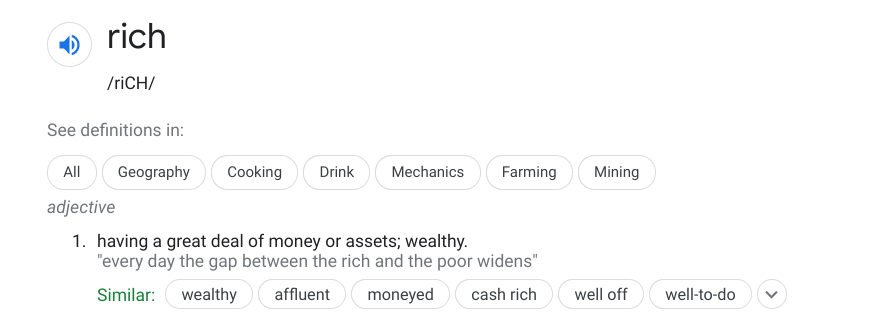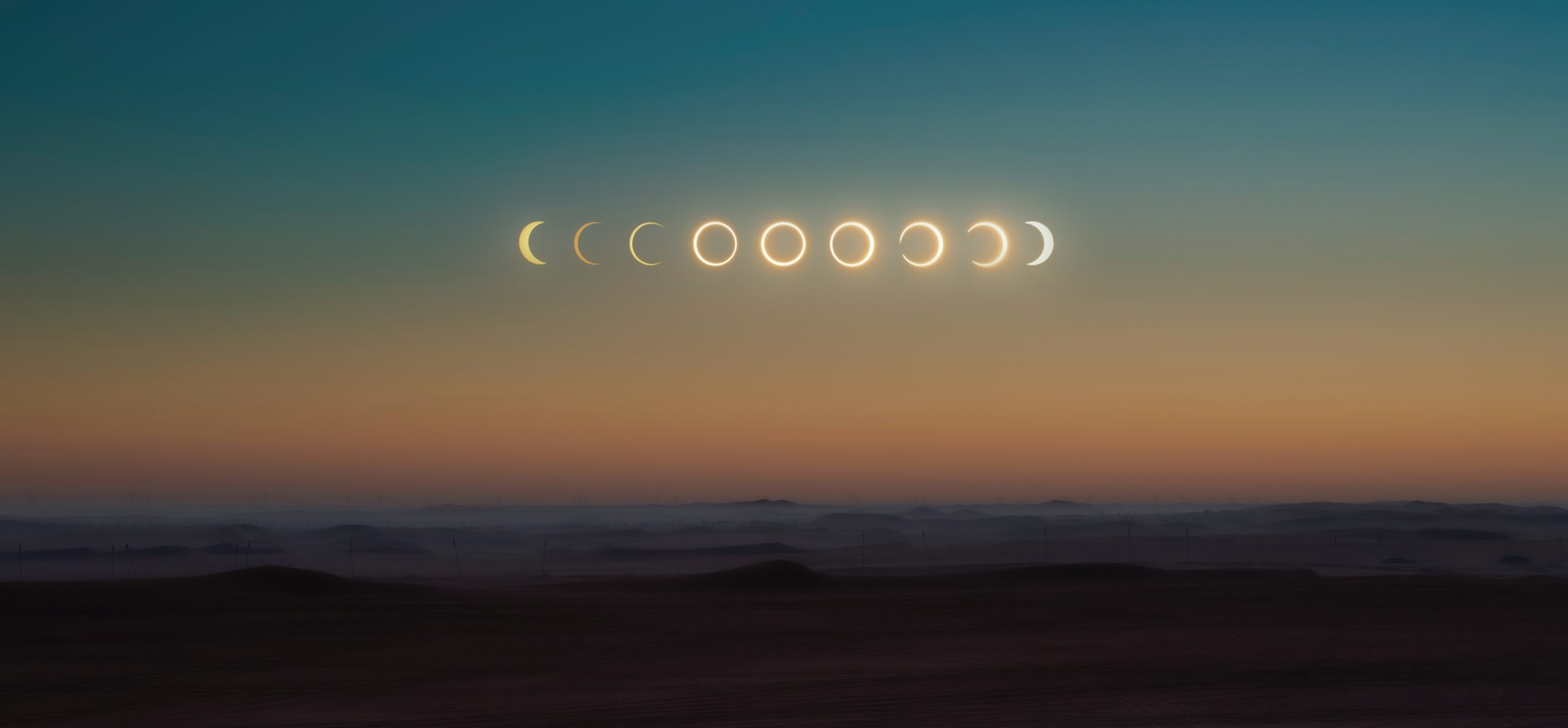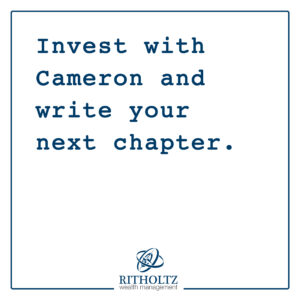In 1980, philosopher and scholar Ronald Dworkin described wealth as “easily misunderstood.”
How would you describe wealth?
For me, wealth is experiences. It’s knowledge, it’s love, and eventually, an inheritance. Wealth is your definition of the value of the resources that you accumulate and eventually distribute. And because of this, wealth creates options.
Wealth is something that wants to be given and shared.
But I believe that nobody becomes ‘wealthy’ on their own. Meaning, true wealth is passed down. With that, I believe you cannot continue to pass down something that is not of value. No one will want it. For example, you cannot pass down your iPhone 11. Your iPhone is not “wealth.”
We all have guiding principles in our lives that greatly affect who, how, and what we decide to spend our money on.
If I asked you to write down ten of your own values, I’m sure we’d all have similar, but different answers. From there, highlight or circle your top five. I believe those very ones drive who we are … personally and financially.
What Wealth is Not
“Wealth is what you don’t see.” – Morgan Housel
You see, I subscribe to the notion that “wealthy” and “rich” are not synonymous.
Although my colleague Ben Carlson might disagree, I believe what he is describing in this post is the seeds to his wealth. I guarantee those memories of time spent with his kids when they were so young will be with him forever. As you’ll see a common theme throughout here, wealth does not always have to be in terms of money.

You see, below this, the second definition of rich was “plentiful, or abundant.” I’ve always seen rich as the abundance of something that can be easily lost. Growing up in the South, Sunday church was a big deal. I’ve always been told, ‘just as quickly God gave it to you, he can just as easily take it back.’ Over time, I’ve translated that to just riches can quickly pile up, they are lost just as quickly.
Rich is almost too liquid.
See wealth is sticky. When you’re wealthy, you can give things up way easier. Strategies to even donate money using vehicles like donor-advised fund still benefits you, emotionally and financially. All without the thought of running out of money ever crossing your mind. At this stage, money almost seems to replenish itself. Although, rest assure, even syrup can be burnt to a crisp if you’re not careful.
The Moment of Realization
“An individual maximizes his own wealth when he increases the value of the resources he owns.” – Ronald Dworkin
Every Sunday, I have a small group of friends from college where we just talk about what’s going on in our lives; Our jobs, what we’re reading, what’s been working/what’s not been working, and so on.
One Sunday, my friend Victor (or just Vic), talked about how he needed to write down his values. Declaring that what doesn’t align with them should be/will be eliminated, or at least limited, if he can help it.
After a week of thinking of my own values, one night I called Victor to talk about this. I asked him, “what’s your definition of wealth? How would you say those same values you mentioned reflect how you think about money? And honestly, at what point do they conflict, if at all?”
This is what he had to say.
“[Wealth is] Having the resources and skills to provide me with the freedom to do what I want with my life. As well as, to be able to take care of my family, without having to worry about the ‘what ifs’ of life. Although finances and assets are a big part of it, these resources aren’t just money. It’s the ‘other’ things – connections, knowledge, ideologies – that will allow them to see things differently.”
Vic and I laughed and agreed that back in high school, we didn’t care about books. We wanted what all teenage boys wanted: Respect. Stares from girls we didn’t know yet.
Today, our thought process on how we spend our time is much more valuable than what we’re spending money on.
We talked about how gaining wealth will allow him to provide for his family – his siblings, parents, and eventually his own family. Providing for his entire family, or at least being a source of “wealth” to them, is important to him. So most aspects of Vic’s life must be aligned with growth, self-awareness, integrity, etc. – not just money.
So the price of a book, the cost of trips abroad, will all be seen as frivolous to the stories and the knowledge we’ll gain from said actions. We are laying the foundation for compounding. I loved when Morgan Housel said “Compounding works best when you can give a plan years or decades to grow. This is true for not only savings but careers and relationships.”
People like Jeff Bezos, Elon Musk, the Walton Family, are not just wealthy because they are the richest people on earth. They are wealthy because they provide indispensable value to other people’s lives. They provide jobs, they provide insurance for single mothers, they are creating professional foundations for young families. In that same essay, Dworkin declared that maximum wealth is achieved “when goods and other resources are in the hands of those who value them most.” This is what makes a nation wealthy.
A Simple Trade-off
More isn’t always better.
I love the way Kim Sawyer put this. He said, “you decide what is valuable to you and how much. You hold the capacity … to generate wealth. Your wealth is simply the realization of the two truths.”
What values really do is outline how you accept trade-offs.
Let’s take one of my core values for example. Relationships. When it comes to the people in my life that I care about, I try not to frequently let money be a barrier or constraint to our relationship. My transactions when I’m with my friends, brother, or sister definitely do not reflect how I normally feel about discretionary spending on any given day.
And when I finally get a dog, all bets are off the table!
I intentionally used the word trade-offs to describe our values, because they etch what we’re willing to give up – time, money, possessions, etc. – for what we deem equivalent or less worthy.
I think that age definitely plays one of the biggest roles in how you would even define what is, or is not, valuable. It’s not hard to tell what Ben values. He even said himself, “Having millions of dollars wouldn’t come close to providing the same feeling I got this past week watching my 7-year old scale a rock wall like a champ or confidently walk up to do a high ropes course with zero signs of trepidation or fear.”
Look, I’m sure being a financial advisor will continue to make him a rich man. Indispensable moments with his son and daughter feel richer than dark chocolate. But his wealth reveals itself when his children live happy, tradition-filled lives. Not flaunts of how much money they have or who their father is.
Essentially, our values are also just a list of our biggest vulnerabilities.
Having boatloads of money doesn’t make you wealthy. Some of the richest people are truly sad to their core. Money is just one piece of the pie. But that doesn’t make a person whole. We seek, better yet we crave, the intangibles of life. A family is wealthy when they’re equally satisfied as they are rich.”Achieving true wealth means possessing the ability to enjoy the small, ordinary pleasures of life.” Nothing to do with having more money.
As I mentioned earlier, wealth creates options. With that, those options open the door for negotiation. This power allows you to decide if you will or will not accept the terms, conditions, or obligations to the choices at hand. In one of my favorite personal finance books, The Simple Path to Wealth, the author called the seeds to his wealth F-you money – “not enough to retire, but easily enough to say F-you if needed.”
How Do I Know When I’m Wealthy?
Dworkin says wealth is “a term of art within the theory…”
This begs the question again, what is wealth? Is it the payoff of a big investment?
The actual money spent or saved is not an investment. That’s the principal. The investment is what is given up today for tomorrow. The investment itself is a concept, it’s a choice, not the dollar figure. Money doesn’t make you who you are, it only allows you to be more of yourself. Wealth should not be seen in terms of net worth.
Every culture has its definition of wealth. Some in terms of land, livestock, or for some, currencies. It is known that herding cultures use cattle, sheep, and horses as a measure of wealth. If wealth is paraphrased down to the abundance of scarce resources, then I’d like my wealth to be in resources that are hard to keep.
The last thing I’ll leave you with is, we don’t invest to solely have more money. Some might. But most of us do not. This is why we label our accounts “Vacation home,” “Disneyland,” “Our 10-year anniversary,” or “Stephanie’s college.” We invest towards our goals. We allocate towards efficiency. You’re not really on the path to wealth until these things have purpose. That is why Dworkin says wealth is maxed when [she] he “increases the value of the resources he owns.”
When you have your values in order – your why – it makes investing and building ‘wealth’ a whole lot easier. You can’t be swayed or dismantled from your end goal. Once you establish the foundation to start the compounding process, only then are you able to build wealth.
If you haven’t already taken some time to write down your values, ask yourself what is important to you? What gets you out of the bed in the morning? Then ask yourself, how does this align with how I spend my money and what my definition of wealth is?

Photo by Amed Ismail via – Unsplash

